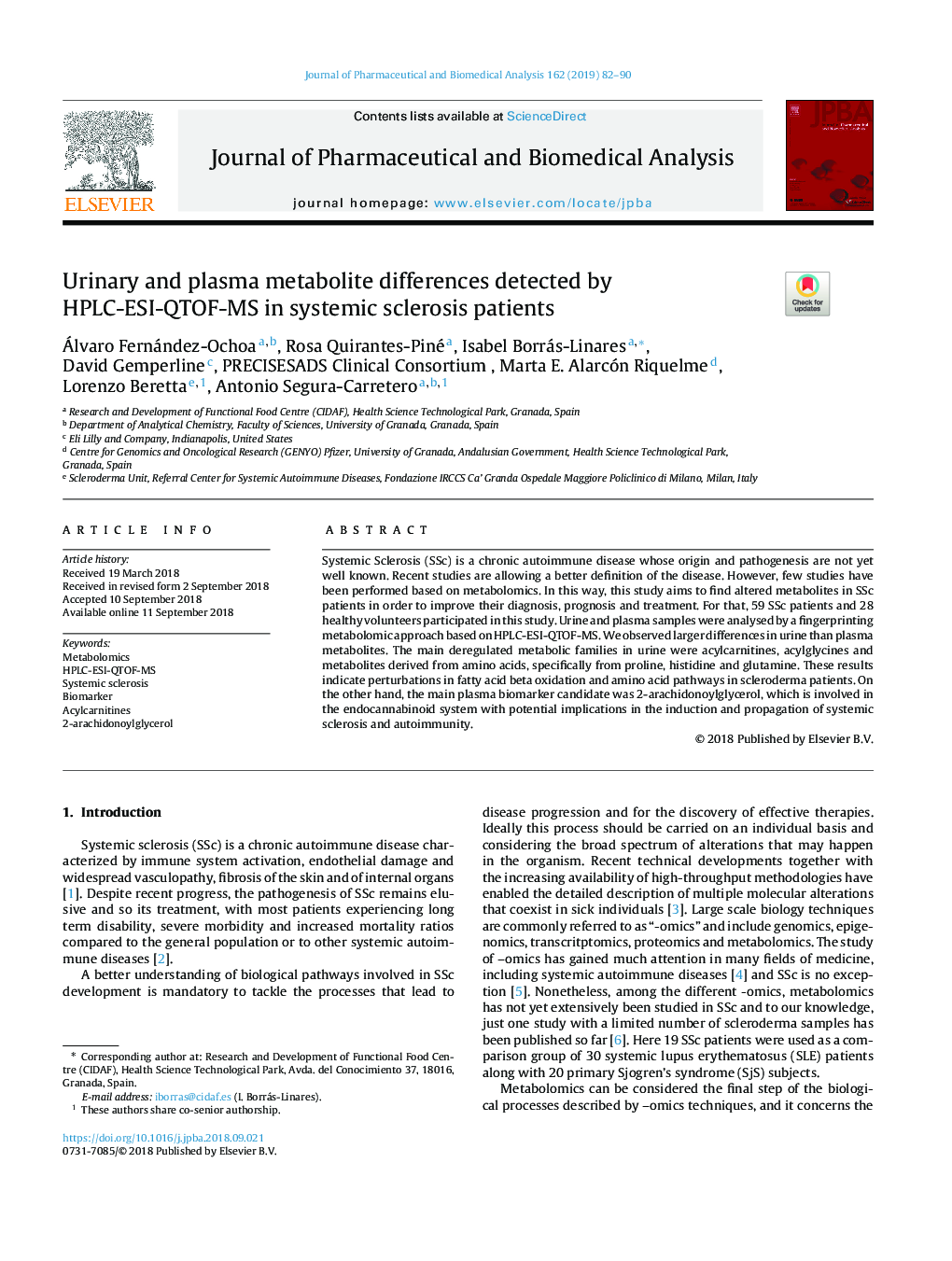| Article ID | Journal | Published Year | Pages | File Type |
|---|---|---|---|---|
| 10154500 | Journal of Pharmaceutical and Biomedical Analysis | 2019 | 9 Pages |
Abstract
Systemic Sclerosis (SSc) is a chronic autoimmune disease whose origin and pathogenesis are not yet well known. Recent studies are allowing a better definition of the disease. However, few studies have been performed based on metabolomics. In this way, this study aims to find altered metabolites in SSc patients in order to improve their diagnosis, prognosis and treatment. For that, 59 SSc patients and 28 healthy volunteers participated in this study. Urine and plasma samples were analysed by a fingerprinting metabolomic approach based on HPLC-ESI-QTOF-MS. We observed larger differences in urine than plasma metabolites. The main deregulated metabolic families in urine were acylcarnitines, acylglycines and metabolites derived from amino acids, specifically from proline, histidine and glutamine. These results indicate perturbations in fatty acid beta oxidation and amino acid pathways in scleroderma patients. On the other hand, the main plasma biomarker candidate was 2-arachidonoylglycerol, which is involved in the endocannabinoid system with potential implications in the induction and propagation of systemic sclerosis and autoimmunity.
Keywords
Related Topics
Physical Sciences and Engineering
Chemistry
Analytical Chemistry
Authors
Álvaro Fernández-Ochoa, Rosa Quirantes-Piné, Isabel Borrás-Linares, David Gemperline, PRECISESADS Clinical Consortium PRECISESADS Clinical Consortium, Marta E. Alarcón Riquelme, Lorenzo Beretta, Antonio Segura-Carretero,
